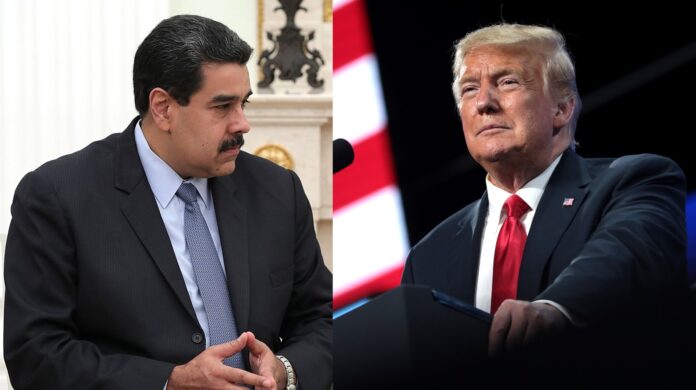In the early hours of July 28, Venezuelans lined up outside polling stations across the country, hoping to cast their votes for a new president, a new beginning. They waited in the sweltering heat, talking in hopeful whispers about change. But by nightfall, their hope was shattered. Nicolás Maduro, long accused of authoritarian tactics, declared victory once more. The lines outside polling stations became lines of protest, with millions pouring into the streets, convinced their democracy had been stolen yet again.
Venezuela’s Road to the 2024 Election
Venezuela’s path to its current crisis began during Hugo Chávez’s presidency (1999-2013). Under Chávez, Venezuela initially prospered through its oil wealth, which he leveraged to create extensive social programs, including free housing, healthcare, and education. However, this prosperity masked a systematic dismantling of democratic institutions and civil liberties. Ryan C. Berg, director of the Americas Program at the Center for Strategic and International Studies, describes the process: “It’s a story that’s pretty well known now within Latin America because we’ve seen it in other countries: populism, charisma, quite a few resources at Hugo Chávez’s disposal, the institutional declines, attacks on civil society and the media, slowly closing civil and political spaces”. When Chávez died in 2013, his successor Nicolás Maduro inherited a nation already showing cracks in its foundation. As oil prices collapsed, Maduro’s response was to become increasingly repressive, leading to rigged elections in 2014 and 2018. The result was devastating: by 2019, poverty had risen to 96%, and inflation reached an astronomical 350,000%.
The July 2024 election represented a critical juncture for Venezuelan democracy. Despite pre-election polls showing opposition candidate Edmundo González leading by a wide margin, the government-controlled National Electoral Council declared Maduro the winner with 51.2% of the vote. However, the opposition quickly produced evidence from over 80% of polling stations showing González had won nearly 70% of the vote, demonstrating electoral fraud. The aftermath has been brutal. Security forces and armed pro-government gangs have cracked down on protesters, resulting in at least 23 deaths and over 1,500 arrests, including opposition figures and journalists. The international community’s response has highlighted growing global divisions, with the United States and European Union refusing to recognize Maduro’s victory while Russia and China rushed to congratulate him.
Varying Geopolitical Responses
Therefore, for the United States, the failure to effect democratic change in Venezuela raises troubling questions about its declining global influence and the effectiveness of traditional Western diplomatic tools. Despite years of sanctions and diplomatic pressure, the Maduro regime has proven remarkably resilient. In 2019, the Trump administration froze Venezuelan government assets and prohibited U.S. persons from engaging in transactions with the Maduro regime. The Biden administration initially attempted a more nuanced approach, offering sanctions relief in exchange for democratic reforms through the 2023 Barbados Agreement. However, when Maduro barred opposition leader María Corina Machado from running and proceeded with electoral fraud, the U.S. found itself with limited options. The reimposition of sanctions in April 2024 demonstrated both the determination to maintain pressure and the recognition that such measures have failed to achieve their intended goals. Carolina Jiménez Sandoval, president of the Washington Office on Latin America, notes: “I think it is in the U.S. interest to have a democratic Venezuela. A democratic Venezuela could be a reliable partner. Right now, the partnership that once existed does no longer exist”.
Russia and China’s support for Maduro goes beyond mere diplomatic backing. Russia has deployed its Baltic Fleet to Venezuelan waters and there are reports of Wagner Group mercenaries helping suppress protests. Meanwhile, China has invested over $67 billion in Venezuela since 2007, providing critical economic lifelines that help the regime circumvent Western sanctions. For Moscow, Venezuela represents a strategic opportunity for “symbolic reciprocity” – a way to counter U.S. influence in what Russia considers America’s “near abroad,” just as the U.S. supports Ukraine in Russia’s sphere of influence. China’s support is more pragmatic, focused on securing oil resources and demonstrating its ability to protect authoritarian allies from Western pressure. This support has proven crucial for Maduro’s survival. Through Russian oil and banking companies, Venezuela has maintained hidden financial networks that allow it to continue selling oil despite sanctions. China’s technological assistance has enabled the regime to enhance its surveillance capabilities through the “homeland card” system, modeled after China’s own national identity card program. The crisis thus exemplifies a broader contest between democratic and authoritarian systems, with Venezuela serving as a proxy battlefield in the larger struggle for global influence. As one expert notes, “If Moscow can demonstrate – even if only symbolically – that it contributed to Maduro’s survival, it would enhance its standing among authoritarian-leaning regimes not only in Latin America but globally”.
As Venezuela descends deeper into political turmoil, the implications extend far beyond its borders. If the United States cannot effectively support democracy in its own hemisphere, what does this suggest about its ability to defend democratic values globally? The answer to this question may well determine the future of the international order. For Venezuelans, the cost of this geopolitical struggle is measured in human terms. One in three citizens faces food insecurity, and over 7.7 million have fled the country. Their story is a stark reminder that in the contest between democracy and authoritarianism, ordinary people pay the highest price.
The fraudulent election of July 28th, 2024, is not just another instance of authoritarian overreach in Venezuela, but a tipping point that could determine the country’s future. As the world watches closely, this election symbolizes a key moment in the struggle between Western democratic principles and authoritarian regimes. For the United States and its allies, this crisis is more than a single country’s problem; it’s a test of democracy’s strength in the Western Hemisphere and beyond.
Featured Image: Columbia 1






Comments are closed.